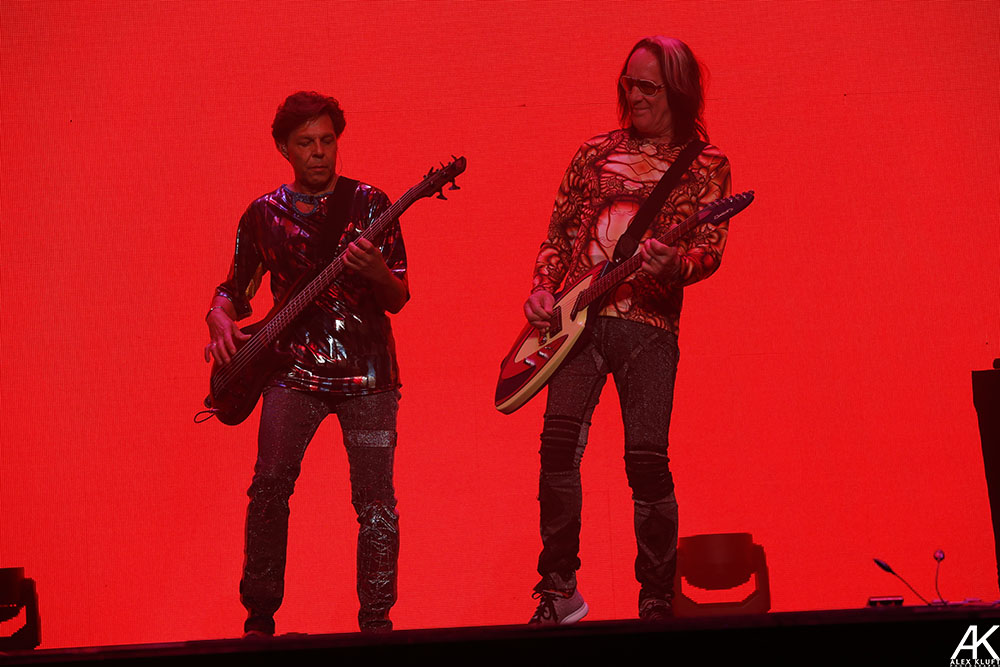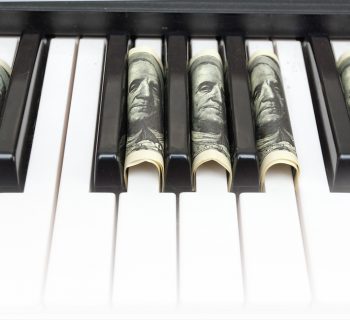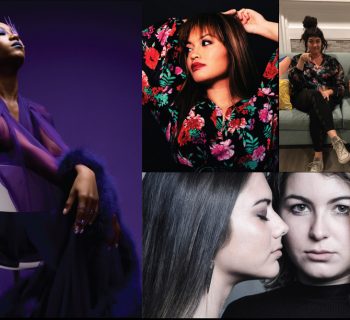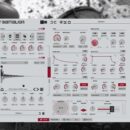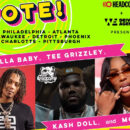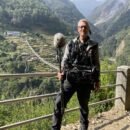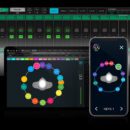Just before graduating from Western Washington University in 2012, Harrison Mills and Clayton Knight—known respectively as Catacombkid and BeachesBeaches—formed the electronic duo ODESZA. The self-released debut album, Summer’s Gone, dropped that same year and earned them no small amount of plaudits in the underground EDM world. Going the DIY route early on, whether it was by design or not, worked out well for Mills and Knight. They were on their way.
From 2014’s beloved sophomore effort In Return, ODESZA has been working with indies Ninja Tune and Counter, and then, from last year’s exceptional A Moment Apart, their own Foreign Family Collective label.
The progress has been swift and impressive. Less than a month after the release of In Return, ODESZA hit 30 million Soundcloud plays, and the RAC remix of “Say My Name” earned a Grammy nomination. Something was clearly happening—this wasn’t your typical EDM project destined to burn bright in clubland glory before disappearing into the vinyl bins of nostalgia-fueled history. No, these guys have been on an upward trajectory since leaving school.
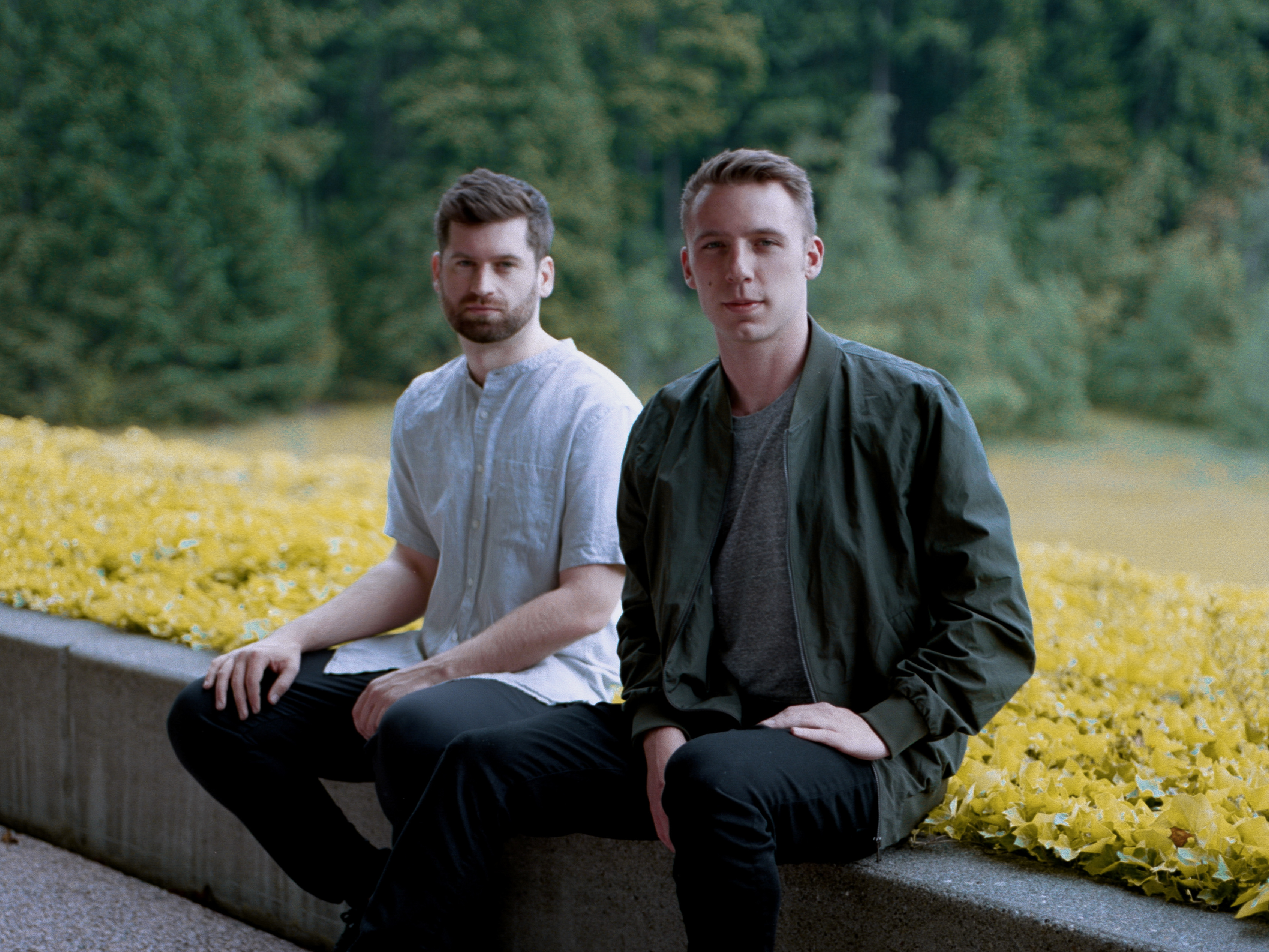 A Moment Apart upped the ante further still. Debuting at No. 3 on the Billboard 200, the record saw ODESZA receive two additional Grammy nominations (for the album, and for the recording “Line of Sight”). A Moment Apart is also notable for the plethora of incredible contributions, from artists as respected as Regina Spektor, Leon Bridges, Naomi Wild, RY X, Kelsey Bulkin, WYNNE and more.
A Moment Apart upped the ante further still. Debuting at No. 3 on the Billboard 200, the record saw ODESZA receive two additional Grammy nominations (for the album, and for the recording “Line of Sight”). A Moment Apart is also notable for the plethora of incredible contributions, from artists as respected as Regina Spektor, Leon Bridges, Naomi Wild, RY X, Kelsey Bulkin, WYNNE and more.
Sound-wise too, the album saw the duo take another forward step. Lush and symphonic, and simultaneously moody and relaxing, A Moment Apart could be film score, and yet the songs work beautifully by themselves. The album tracks fit together and follow a narrative, yet they also work independently.
The giant climax in the recent ODESZA story came in April when they performed on the Coachella Festival main stage, second only to headliner Eminem. The two weekends saw the group put in visually and aurally gorgeous sets, complete with drones and a killer light show. It’s not always easy for an electronic act to put on a show that fills such an enormous stage in front of so many thousands of people, but ODESZA nailed it.
There’s no telling what ODESZA can achieve at this point. The sky is the limit. They’re still edgy enough to retain a “cool” factor with the underground EDM community. Meanwhile, they’ve found a way to squeeze out some mainstream success and pop credibility. That’s a potent combination, and these two men have found a way to achieve it on their own terms.
Not long after the conclusion of Coachella, we spoke to Mills and Knight about that festival, A Moment Apart, and more…
Music Connection: After having performed in one of the festival’s tents in 2015, how do you feel your 2018 Coachella main stage appearances went?
Harrison Mills: Really well. We were scared out of our minds before we walked out there. We had been prepping for that show for four months, and there was a lot of pacing before that set. We knew we had a lot to prove, so we were just hoping everything went well and people connected to what we were making.
MC: After the anticipation building up to weekend one, was weekend two any easier?
Clayton Knight: Going into it, it felt like it was going to be; but still, the energy and excitement was quite the same. The nerves started catching up to us right before we went on, so it felt very similar, and actually the energy of weekend two was a little bit better. So everything came together. It was really nice.
MC: A lot of artists say that—the first weekend almost feels like a dry run and by the second, everything’s ironed out…
Mills: Yeah, but again, we’ve had this happen before where everyone gets too comfortable and stuff starts to fall off. So we try to keep it as focused as possible and, like weekend one, have their A-game going. We treat every show the best we can.
MC: How much planning went into it, because the drones alone were spectacular…?
Knight: That took a couple of weeks alone for just the drones. We were lucky enough to have HP Intel help us out with that. It was quite an experience. We didn’t get to see it, unfortunately, because we were on stage.
MC: It looked great from out in the crowd, by the way.
Knight: Well, thank you.
MC: Coachella sets are streamed live and almost-instantly beamed worldwide nowadays—does that add pressure?
Mills: I think the pressure is that it lives forever. Something that you might do spontaneously can be a meme in 10 minutes.
MC: As an electronic duo that pretty much stays with the static equipment, how tough is it to put on a show that fills an enormous festival main stage?
Mills: We think about that a lot. We customize a lot of our music to match the setting of a live experience. All of our music is meant to be a bit more headphone music and be an intimate thing, and when we make a show we try to jump across all these genres and make it a very communal thing. It’s a big, cinematic, theatrical, hopefully cohesive show that touches on a lot of styles and genres. Just trying to bring that down to just one hour and still touch on all those things is a bit difficult.
MC: A Moment Apart came out last year—how have you evolved sound-wise since 2012’s Summer’s Gone debut?
Knight: That’s a good question. We tried to take it in a different direction. We tried to push the envelope a little bit more. It’s a darker album than we’ve done in the past—more cinematic, with very orchestral moments, a lot of string arrangements. So we really focused on songwriting and refining these organic sounds as far as the album goes. We stepped away a little bit further back from that synth production producer world, and wanted to really make an album that felt like it had a feel that would last longer than a trend or anything like that. Something that had some heart to it. I hope we came through that way.
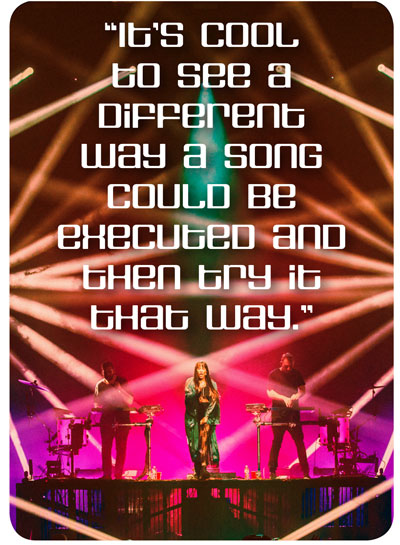
MC: How do you think the electronic music scene has changed in general over those six years?
Knight: It’s always evolving, the electronic scene. We both talked about this recently, where it’s kind of hit a point of saturation, especially in the mainstream world. Everyone’s waiting for the next thing, and really standing by and hopefully the sound evolves to something new and exciting, and I think it will, but we’re all just standing by to see what that is. We’re actually really keen to get writing again, start experimenting with new stuff, and push our stuff as far as we can. It’s an interesting time, and the future is kinda uncertain, but the next couple of years are going to be really exciting.
MC: You work with so many people, especially vocalists, on the new album. Which is your favorite collaboration?
Mills: We definitely really liked working with Leon Bridges. It felt almost serendipitous. It was just really quick, easy and fun. He’s such a talented guy, we did everything in six hours after meeting for the first time. It all came together really quickly, and it just felt natural. It felt like the song wrote itself. We didn’t have to think too hard about stuff. Everything felt right, and that doesn’t happen that often.
MC: The collab with Regina Spektor really sticks out—she’s phenomenal. How did that come about, and how was the experience?
Mills: That’s a pretty funny story. We were fans of her forever, and we were talking about trying to find vocalists for the album. We threw her name out to our manager kind of jokingly, just assuming that it wasn’t possible and she wouldn’t ever think of working with us. And we sent a couple of demos over to her. About four months later she responded, and just said that she’d finally got the time to sit down and check all of our emails, and that she really liked the demos and wanted to work with us.
After we had sent her the demo for the one that she ended up singing to, she said that she actually wanted to sing it to us in person. That’s something that we’ve never experienced. We’re used to working online, five people on Soundcloud, sending files back and forth. But she said she didn’t want us to hear it until she could sing it live for us.
When she came through Seattle, we were really nervous to meet her. We went to her hotel. We rode the elevator to like the 60th floor, knocked on the door. Her husband answered it, her kid was there, we met her family, then we sat down and she just sang the entire song to us while we were just sitting on the couch in her living room.
It was pretty incredible. She sang it with her eyes closed, and then turned to us and said, ‘Do you have any changes?’ We said, ‘Absolutely not.’ Actually, we stripped the song back even more to transport people to the way we got to hear it for the first time.
MC: Where was the new album recorded?
Knight: It goes way back. We had some of the material written while In Return was being written. A lot of it was done in Seattle, and then we would go down to L.A. to write and record vocals. A lot of it was done in our home studio back in our hometown. It was probably a good six-month process. That’s when we had some time off the road to sit down and really lock in these tracks.
MC: For the gear-heads, was there any new equipment used?
Knight: Not so much new equipment as newer techniques—trying to push the boundaries there. Using new plug-ins and whatnot. Just re-recording stuff and layering it, layering it––that was kind of our M.O. We tried to push that envelope a bit more, tried to build these textures and landscapes, soundscapes, that feel really warm and crispy.
MC: You’ve put out a lot of remix albums—what do you like about that process of reinvention?
Mills: Those are really interesting. It allows you to already have something good, and reinvent it in your own way. I think what I like about it is, people have a reference point already to what that song is. So if you can kind of change how they feel about a song, or take it in a way they never would have thought it would have worked—like if you take a heavy rock song and then you took out the instrumental and made it a ballad—those things are really interesting. It’s cool to see a different way a song could be executed and then try it that way.
MC: In this world of streaming and downloading and instant gratification, is the concept of an album, 12 to 14 songs released at once, still important?
Mills: We really like albums. We grew up on them. I think what’s always helped us is that we release one single and then our entire album. I feel like we built a fanbase really around the fact that we build these cohesive journeys. So I feel like it’s kind of been what we’re known for, and we’ve been lucky. Hopefully, people have the patience to sit through an entire album with us. I believe it is the future, I think it allows people to understand a sound more thoroughly. It’s just more about the ADD culture, if it starts shifting more in that direction.
MC: That makes sense—your albums certainly work as one piece of art. Are you thinking about the next one?
Knight: Oh yeah. We’re always thinking about writing, and we’re actually trying to build a studio out on the road here. We travel quite often and tour a lot. Getting in that creative headspace as much as possible is really important. You don’t want to step away from it for too long. It’s like anything else. It takes a lot if practice and time to get that stuff right. So yeah, it’s always on our mind.
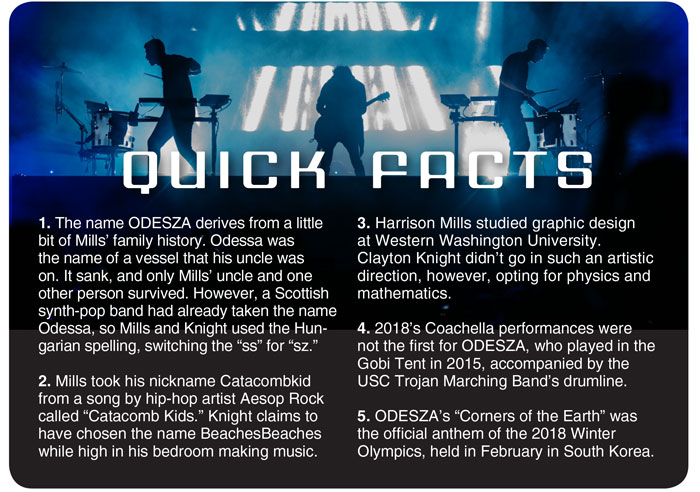
MC: Tell us about the Foreign Family Collective.
Mills: Originally, that was just a passion project. Kind of what we and Clay wanted to do, even before we started a group together, we found a bunch of really interesting artists online that didn’t really have much representation, that we thought were making really cool stuff. But we didn’t really want to do it without having a team behind us. We knew we really couldn’t do a lot of the artists yet.
So as things have grown and we’ve gotten our own team, and learned different techniques on music and built a platform ourselves, we started trying to put out artists we were passionate about and felt deserved a little bit of attention. It grew a lot faster than we expected, and has become its own thing now. We’ve really built, for lack of a better word, a family, and a lot of friends and talented musicians.
MC: What’s next?
Knight: We’re finishing up this tour, we have a Red Rocks show, then we’ll hit Europe for a while and do the festival run over there. We’ll end up doing our own full European run. So quite a bit of touring, as you can imagine. Hopefully some writing as we move forward. We’ll see if we can release something in the near future as well. But really focusing on the show, getting it dialed in, making it the production we want it to be, and just evolving as much as possible.
Contact Josh Page, [email protected]

